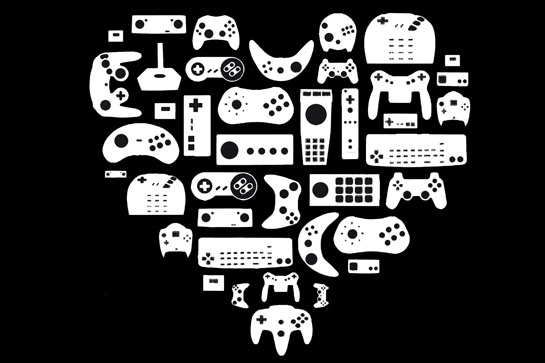MINDFUL GAMER
What is the Mindful Gamer?
Gaming is everywhere. The Gaming industry now makes more money than the movie industry. Some of the best writers, directors and creators now work for games companies.
At Ascension Therapy Clinic we explore how playing the games you love can make you healthier, happier and more confident person while learning life skills that can help you reach your maximum potential.
Mindful Gamer has been created for anyone between the ages of about 10 to 18.
If someone is outside this age group but may feel they would benefit from Mindful Gamer please feel free to make contact to discuss individual cases.
Realizing Your Potential Through Games
Gamers tap many inner resources while playing games such as motivation, endurance, multitasking, critical thinking and hand eye coordination. If anyone tells you a Gamer is lazy, they should watch how many times the player will die in a game challenge then try, try, try again until he has mastered what needs to be achieved. That’s a lot of focus and hard work.
Working with Gamers I have found once they understand their play style and realize the power of their inner resources, this gives them confidence and energy to try many new things in life.
In one example a Gamer realized playing a game where he embodied a calculating thief who loved to take chances was a perfect employee for Google. In our sessions we had spent time understanding what his strengths were and how to harness the power of his resources.
Google loves employees that take chances and are not afraid to fail inventively. Fail faster is their motto. The Gamer came to understand that he was already taking chances and failing but that he was also dedicated and innovative in his next attempt to beat the game. This makes an excellent google prospect.
To a young person, knowing they are already learning the skills of life through gaming gives them great confidence to try new things in life. They learn not to be afraid and that failing faster is achieving your goal sooner.

Through Gaming you can learn life skills. Gaining self awareness and the emotional intelligence. Learning what your weaknesses and strengths are through the Gaming world is an exciting and can be a deep therapeutic experience.
Mindful Gamer also helps Gamers recognize & navigate the manipulative practices of some gaming companies and predatory individuals online.
As kids get a little older it’s normal for parents to give them more freedom to meet friends and let them decide how they spend their time. In everyday life parents can regulate and monitor a child’s environment but in parts of the unregulated online world anything goes.

If a child doesn’t have online awareness of the dangers of the internet then they can be exposed to many damaging experiences.
One example is playing games online can be rewarding and exciting and help children to develop strategic skills and friendships, but they are also open to exploitation by games companies who play on their need to keep up with friends and to advance to further stages of a game by encouraging children to spend on loot boxes.
These are mechanics in many casual games on phones and elsewhere that are akin to gambling. The lootboxes (see also, microtransactions) make a person feel pressured by the game or other players to buy an item that you may not really need. The lootboxes are presented as a surprise mechanic where a person pays money to open a box which contains an unknown item or power that can enhance the players skill level or appearance. Children and adults can quickly become addicted to this gambling reward mechanic.
The most important understanding the Gamer will learn is to be aware of potential to be manipulated by nasty individuals or unscrupulous companies that can prey on any age group. The Gamer will be prepared if an online friendship pushes boundaries to where the other person may be predatory by trying to manipulate the kid to gain sensitive personal information or photos. This awareness and knowing how to react can save the child their mental health and their families money.
How Does the Mindful Gamer Program Work?
At Ascension Therapy Clinic we use Mindfulness, hypnotherapy and CBT to navigate the dangers of the online world from the safety of your mind. We work through such issues as peer pressure, momentary compulsions and confusing situations by mindfully going through the scenarios, creating awareness of the dangers and consequences then compiling alternative healthier responses to manipulative and pressured situations. This gives you the power back online to make beneficial informed choices.
In this Always On existence, younger and younger people are realizing the pleasurable feeling of satisfying instant gratification is only a moment away online. In our sessions you will learn to enjoy a more relaxed online lifestyle and in turn be happier, healthier and peaceful in life.
Curious to Learn More About the Mindful Gamer?
Schedule a free Discovery Session with James
Further Reading:
Practical advice for Gamers by Jane McGonigal
Reality is Broken explains the science behind why games are good for us–why they make us happier, more creative, more resilient, and better able to lead others in world-changing efforts.
But some games are better for us than others, and there is too much of a good thing.
Here are a few secrets that aren’t in the book to help you (or the gamer in your life) get the most positive impact from playing games.
This practical advice–5 key quidelines, plus 2 quick rules–is scientifically backed, and it can be summed up in a single sentence:
Play games you enjoy no more than 21 hours a week; face-to-face with friends and family as often as you can; and in co-operative or creator modes whenever possible.

1. Don’t play more than 21 hours a week.
Studies show that games benefit us mentally and emotionally when we play up to 3 hours a day, or 21 hours a week. (In extremely stressful circumstances–such as serving in the military during war-time–research shows that gamers can benefit from as many as 28 hours a week.) But for virtually everyone else, whenever you play more than 21 hours a week, the benefits of gaming start to decline sharply. By the time you’re spending 40 hours or more a week playing games, the psychological benefits of playing games have disappeared entirely–and are replaced with negative impacts on your physical health, relationships, and real-life goals. So always strive to keep your gaming in the sweet spot: 7–21 hours a week.
2. Playing with real-life friends and family is better than playing alone all the time, or with strangers.
Gaming strengthens your social bonds and builds trust, two key factors in any positive relationship. And the more positive relationships you have in real life, the happier, healthier and more successful you are.
You can get mental and emotional benefits from single-player games, or by playing with strangers online–but to really unlock the power of games, it’s important to play them with people you really know and like as often as possible.
A handy rule-of-thumb: try to make half of your gaming social. If you play 10 hours a week, try to play face-to-face with real-life friends or family for at least 5 of those hours.
(And if you’re not a gamer yourself–but you have a family member who plays games all the time, it would do you both good to play together–even if you think you don’t like games!)
3. Playing face-to-face with friends and family beats playing with them online.
If you’re in the same physical space, you’ll supercharge both the positive emotional impacts and the social bonding.
Many of the benefits of games are derived from the way they make us feel–and all positive emotions are heightened by face-to-face interaction.
Plus, research shows that social ties are strengthened much more when we play games in the same room than when we play games together online.
Multi-player games are great for this. But single-player works too! You can get all the same benefits by taking turns at a single-player game, helping and cheering each other on.
4. Cooperative gameplay, overall, has more benefits than competitive gameplay.
Studies show that cooperative gameplay lifts our mood longer, and strengthens our friendships more, than competing against each other.
Cooperative gameplay also makes us more likely to help someone in real life, and better collaborators at work–boosting our real-world likeability and chances for success.
Competition has its place, too, of course–we learn to trust others more when we compete against them. But if we spend all our time competing with others, we miss out on the special benefits of co-op play. So when you’re gaming with others, be sure to check to see if there are co-op missions or a co-op mode available. An hour of co-op a week goes a long way. (Find great co-op games for every platform, and a family-friendly list too, at Co-Optimus, the best online resource for co-op gaming.)
5. Creative games have special positive impacts.
Many games encourage or even require players to design and create as part of the gameplay process–for example: Spore, Little Big Planet, and Minecraft; the Halo level designer and the Guitar Hero song creator. These games have been shown to build up players’ sense of creative agency–and they make us more likely to create something outside of the game. If you want to really build up your own creative powers, creative games are a great place to start.
Of course, you can always take the next creative step–and start making your own games. If you’ve never made a game, it’s easier than you think–and there are some great books to help you get started.
2 Other Important Rules:
* You can get all of the benefits of a good game without realistic violence–you (or your kids) don’t have to play games with guns or gore.
If you feel strongly about violence, look to games in other genres–there’s no shortage of amazing sports, music, racing, puzzle, role-playing, casual, strategy and adventure games.
*Any game that makes you feel bad is no longer a good game for you to play.
This should be obvious, but sometimes we get so caught up in our games that we forget they’re supposed to be fun.
If you find yourself feeling really upset when you lose a game, or if you’re fighting with friends or strangers when you play–you’re too invested. Switch to a different game for a while, a game that has “lower stakes” for you personally.
Or, especially if you play with strangers online, you might find yourself surrounded by other players who say things that make you uncomfortable–or who just generally act like jerks. Their behavior will actually make it harder for you to get the positive benefits of games–so don’t waste your time playing with a community that gets you down.
Meanwhile, if you start to wonder if you’re spending too much time on a particular game – maybe you’re starting to feel just a tiny bit addicted–keep track of your gaming hours for one week. Make sure they add up to less than 21 hours! And you may want to limit yourself to even fewer for a little while if you’re feeling too much “gamer regret.”
